The Seralini affair. The dead-end of an activist science
Introduction
The press, public authorities and scientists facing the media staging of an activist science
A media frenzy
Political ecology and its media allies counterattack
The CRIGEN network
The complacency of the public authorities
Public research under accusation
A successful communication operation
The timefor scientific rebuttal
The scientific evaluations of French official agencies
The French government outbids
Worldwide scientific assessment by official agencies
A wave of scientific refusal
The study is retracted by ‘Food and Chemical Toxicology’
The world of political ecology denounces a conspiracy
Considerations on republishing the article
Conclusion
Glossary
Summary
In September 2012, Gilles-Éric Séralini and his colleagues’ alarmist article on the consumption of a GMO-type maize in the scientific journal Food and Chemical Toxicology was illustrated with monstrous tumours in rats, triggering a worldwide media wave, political reactions and a huge shock among scientists.
Although it was gradually discredited, retracted from the journal, and finally refuted after scientific studies financed by French and European public subsidies, Séralini’s publication and its method of mediatisation (notably, before publication with unusual conditions imposed on journalists who were banned from submitting the publication for critical opinions) will mark the history of conflicts that can arise between scientific research processes and their media, political or social reception.
Marcel Kuntz,
Research Director at the French National Centre for Scientific Research (CNRS), Professor at Grenoble-Alpes University, 2017 gold medal recipient from the French Academy of Agriculture.
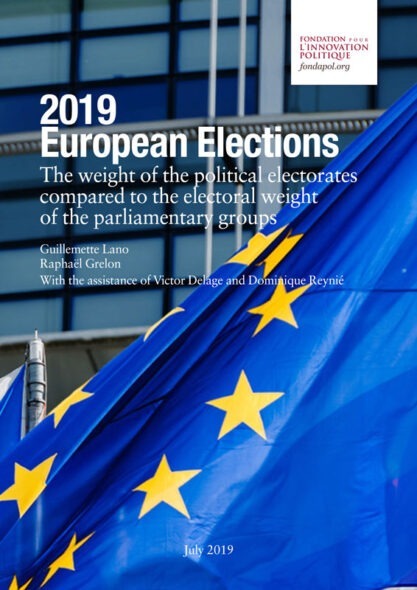
2019 European Elections. The weight of the political electorates compared to the electoral weight of the parliamentary groups
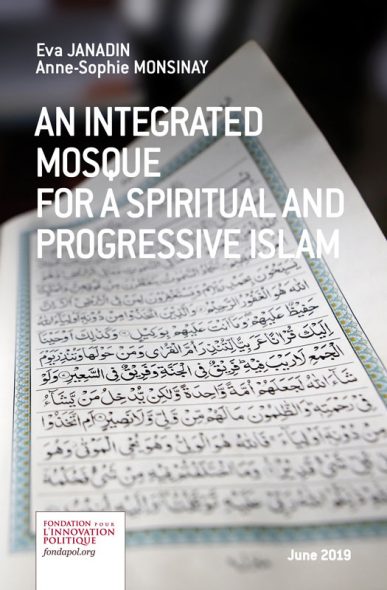
An integrated mosque for a spiritual and progressive islam
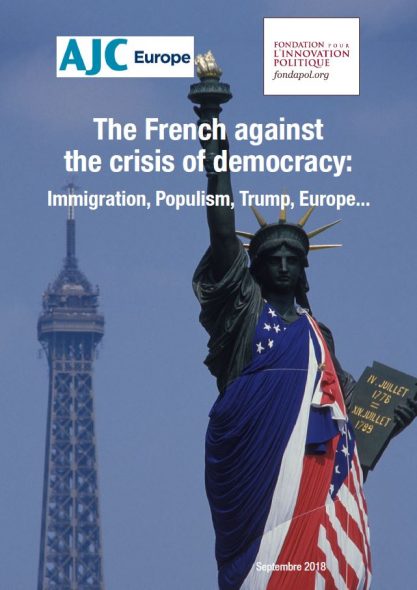
The French against the crisis of democracy: Immigration, Populism, Trump, Europe...
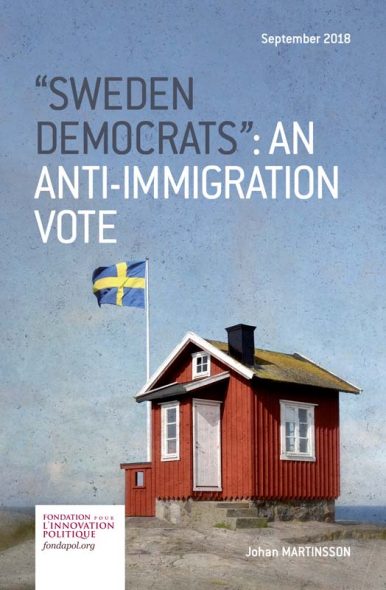
“Sweden Democrats" : an anti-immigration vote

Swedes and Immigration : End of homogeneity? (1)

Swedes and Immigration : End of the consensus ? (2)
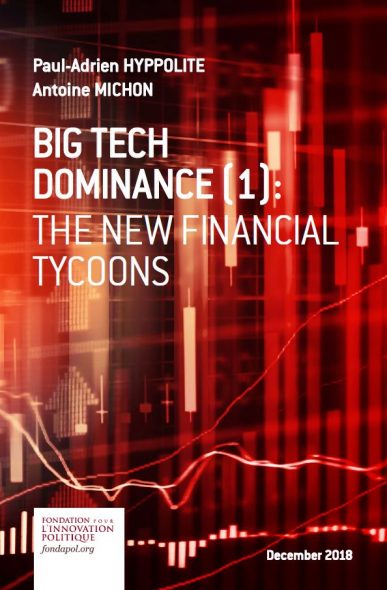
Big tech dominance (1): the new financial tycoons
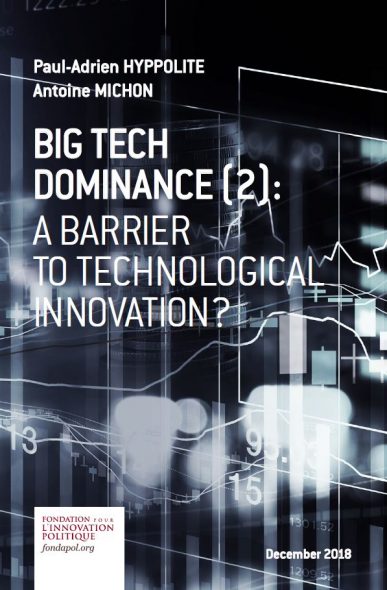
Big tech dominance (2) : a barrier to technological innovation ?
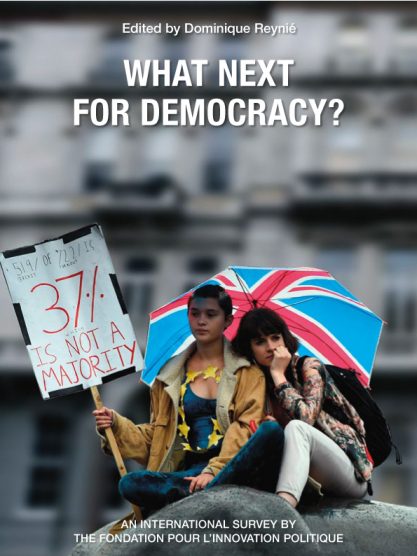
What next for democracy?
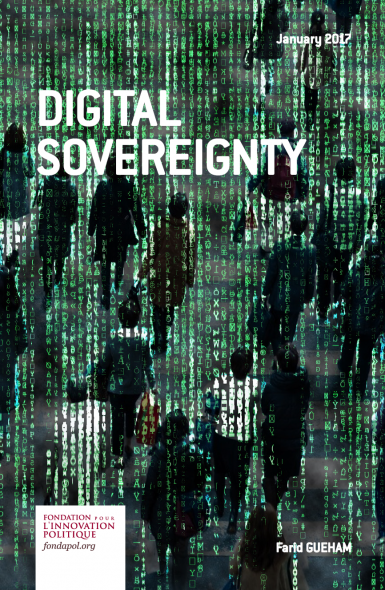
Digital sovereignty - steps towards a new system of internet governance
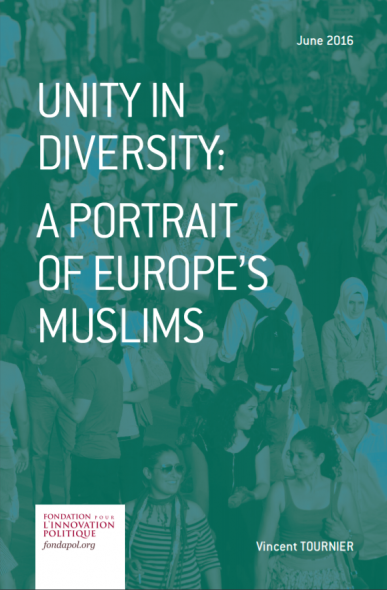
Unity in Diversity: a portrait of Europe's Muslims
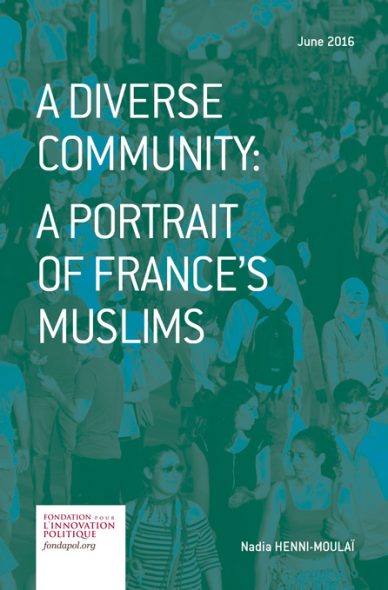
A diverse community: a portrait of France's Muslims
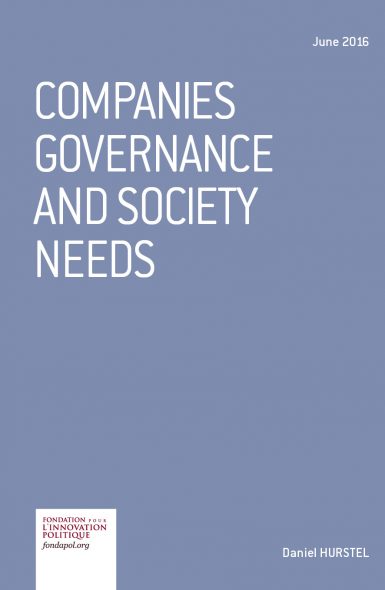
Companies governance and society needs
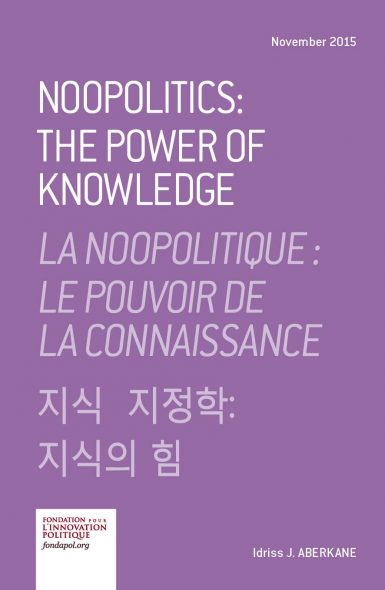
Noopolitics: The Power of Knowledge
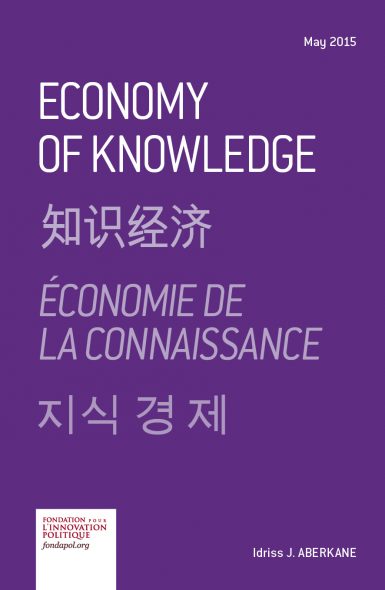
Economy of Knowledge
Gilles-Éric Séralini, Émille Clair, Robin Mesnage, Steeve Gress, Nicolas Defarge, Manuela Malatesta, Didier Hennequin and Joël Spiroux de Vendômois, “RETRACTED: Long term toxicity of a Roundup herbicide and a Roundup-tolerant genetically modified maize”, Food and Chemical Toxicology, 50, n° 11, November 2012, p. 4221-4231.
NK603 is the name of a genetic trait* – tolerance to the herbicide glyphosate – introduced into maize (corn) by transgenesis*. Transgenic lines carrying this trait were, for example, grown in the United States and were authorised for importation into Europe. An article by Gilles-Éric Séralini et al., dedicated to describing the effects of the consumption of this GMO*-type maize, was published on 20 September 2012 in a quality scientific journal1. Séralini’s article was illustrated with monstrous tumours in rats and was accompanied by a large scale communication operation, including the edition of two books in French (one by Séralini and the other by Corinne Lepage, a former French Minister of the Environment), a documentary broadcast by the French television channel France 5 and also a film by Jean-Paul Jaud, which triggered a media and political frenzy, and much scientific commentary. This study aims to summarise these events in a factual and documented manner, with particular focus on France, which was the epicentre of the controversy but with also some notable developments elsewhere in the world.
The press, public authorities and scientists facing the media staging of an activist science
A media frenzy
Cyrille Vanlerberghe, Marc Mennessier, ‘L’étude sur les OGM fortement contestée’, fr, 20 September, 2012. This article was a follow-up to another by Mennessier written without having been able to seek scientific advice (‘Les OGM à nouveau sur le banc des accusés’, lefigaro.fr, 19 September, 2012).
OGM : Le protocole d’étude de Séralini présente des lacunes rédhibitoires’, interview of Gérard Pascal, by Audrey Garric, lemonde.fr, 20 September, 2012.
Stéphane Foucart, ‘L’étude qui relance la polémique sur les OGM’, fr, 20 September, 2012.
Hervé Kempf, ‘OGM : Gilles-Éric Séralini, un scientifique engagé et critiqué’, lemonde.fr, 20 September, 2012.
Jean-François Narbonne, ‘Lacunes, résultats inexplicables : l’étude anti-OGM sur la sellette’, huffingtongpost.fr, 21 September, 2012.
Rachel Mulot, Hervé Ratel, Olivier Hertel and Loïc Chauveau, ‘OGM : l’étude choc décryptée par Sciences et Avenir’, fr, 24 September, 2012.
‘OGM : Je n’ai jamaisvu ça. Il faut envoyer une commission d’enquête dansle labo où cela a été fait !”, interview with Gérard Pascal by Olivier Hertel, fr, 20 September, 2012.
Michel de Pracontal, ‘OGM : une étude fait beaucoup de bruit pour presque rien’, fr, 22 Septembre, 2012.
‘Samedi-sciences (60) : à propos des OGM’, blogs.mediapart.fr, 6 October, 2012.
Sylvestre Huet, ‘OGM, Séralini et le débat public’, blogs.liberation, 21 September, 2012.
Satu Lipponen, ‘EUSJA Statement on embargoes and manipulation’, eusja.org, 5 October, 2012 ; AJSPI, ‘Embargo et confidentialité des informations scientifiques’, ajspi.com, 15 October, 2012.
Editorial. Poison postures. Researchers working on controversial topics must take care how they promote their results. Nature, 25 September, 2012.
CNRS, ‘Rappel du Comets [Comité d’éthique du CNRS] sur les aspects éthiques de la communication des chercheurs avec les médias’, cnrs.fr, 2 October, 2012.
As an example, see: Catherine Fournier, ‘Moisson de critiques après l’étude choc sur la toxicité des OGM’, francetvinfo.fr, 20 September, 2012.
As an example, see: Sophie Caillat, ‘Tumeurs sur des rats : les réponses à vos questions sur les OGM’, nouvelobs.com, 21 September, 2012.
Marcel Kuntz, ‘Étude de Séralini sur les OGM : quand va-t-on retrouver la déontologie scientifique ?’, leplus.nouvelobs.com, 23 September, 2012, and ‘OGM : les agences d’évaluation des risques, minées de l’intérieur par la politique’, leplus.nouvelobs.com, 22 October, 2012.
The French magazine ‘Le Nouvel Observateur’2 launched the media campaign on 19 September 2012, preceding the press conference on 20 September by Gilles-Éric Séralini (Professor at the University of Caen, France) with Corinne Lepage (MEP in 2012) at the European Parliament in Brussels. The magazine’s special report, which presented GMOs in an exclusively negative manner, edited by the journalist Guillaume Malaurie, described a scenario worthy of a spy novel (study using a code name, the undercover import of the maize seeds from Canada, the laboratory kept secret due to alleged threats, etc.). The cover of the print issue (published on 20 September) extended a vision to all GMOs which could only possibly be attributed to this single line of maize headlining: ‘Yes, GMOs are poisons!’
The French press almost unanimously aligned itself with this alarmist vision. To our knowledge, the only exceptions were ‘Le Figaro’3 and ‘Le Monde’. The latter newspaper published critical remarks by the toxicologist Gérard Pascal4, an expert who has held many scientific functions5, as well as two factual articles, one moderately sceptical by Stéphane Foucart6 and the other, by Hervé Kempf7, favourable to Séralini. The magazine ‘Valeurs actuelles’ also shared its scepticism in a short article.
The study, publicly available on 20 September, was then analysed in detail, and in the following days other criticisms emerged. The toxicologist Jean- François Narbonne (who also held many scientific functions8) stated on 21 September that ‘This study gives surprising, inexplicable results and has some obvious shortcomings. The results must therefore be analysed in depth […].
On the other hand, all extrapolations are characterized by misinformation’9. On 24 September, the magazine ‘Sciences et Avenir’ published an excellent analysis10 (on 20 September this magazine had already published an off-the- press reaction by Gerard Pascal11). On 22 September, the journalist Michel de Pracontal published a web media article on ‘Médiapart’12 and continued his critical reflection on 6 October on the same website’s blog13. In another article, this same journalist identified ‘the secret lab’ where the study was performed and questioned the lack of transparency surrounding this laboratory both before and after publication of the study results, contrary to usual practice14.
Another topic emerged concerning the unusual conditions of embargo imposed on journalists. The journalists had to commit themselves to not submitting the publication for critical review before its publication, contrary to usual practice. On 21 September, the ‘Libération’ journalist Sylvestre Huet launched an attack on his blog: ’Gilles-Éric Séralini’s team has knowingly organized the misinformation of the public […] A deadly deal for the ethical obligations of journalism, since it demands: no counter-expertise, a confidential scientific article, with no possible criticism.The‘Nouvel Observateur’ therefore published seven pages on this subject with an astonishing lack of investigation’15. The European Union of Science Journalists’ Associations (EUSJA) and its French counterpart also condemned this confidentiality clause16, as did an editorial in the scientific journal Nature17. Whereas, the ethics committee of the French research organization Centre National de la Recherche Scientifique (CNRS) published a short ethics reminder18.
It should be noted that the French press agency (Agence France Press, AFP) also lent itself to this ‘deal’, helping to spread uniquely Séralini’s opinions widely in the media by publishing AFP dispatches from 19 September 2012.
Other articles mentioned criticisms of Séralini’s publication, however, without calling into question Séralini’s conclusions but by introducing accusations against the Monsanto company (as a deterrent) in topics totally unrelated to the Séralini affair19. A number of articles aimed at discrediting those who criticized Séralini were also published by certain media20. Perhaps in order to counterbalance a perceived lack of objectivity in his report, the journalist Guillaume Malaurie invited the author of this current study to write two opinion articles21, which were published on 23 September and 22 October 2012.
Political ecology and its media allies counterattack
Stéphane Foucart, ‘OGM : les vrais et faux arguments du Pr Gilles-Eric Séralini’, lemonde.fr, 25 September, 2012.
Hervé Kempf, ‘Exclusif : Séralini répond à ses détracteurs’, reporterre.net, October 4, 2012.
Sophie Chapelle, ‘L’offensive de Monsanto pour décrédibiliser l’étude sur les OGM’, reporterre.net, 22 September, 2012.
Fabrice Nicolino, ‘Un juge et un critique de Séralini ont servi l’industrie des pesticides’, reporterre.net, 3 September, 2012.
José Bové, ‘Débat OGM : du scientifique au consommateur via l’agriculteur’, liberation.fr, 4 October, 2012.
Arthur Schopenhauer, The Art of Controversy (Die Kunst Recht zu Behalten, 1831).
OGM : ‘Les agences de sécurité sanitaire ont une responsabilité dans la défiance de la population’”, discussion chaired by Audrey Garric, lemonde.fr, 22 October, 2012.
To resolve the conflict between defending their ideological anti-GMO line and a reluctance to support Séralini’s publication on which they had doubts, the journalists of ‘Le Monde’ adopted the following stance: Séralini’s conclusions are certainly questionable, but those who oppose them are no better.Thus, on 26 September 2012, in addition to raising pertinent objections to the publication, Foucart also questioned the independence of its opponents23, a classic and predictable ‘environmental activist’ counterattack. On 4 October, in an article on the ‘Reporterre’ website, Kempf stated that ‘Many [criticisms] are stage- managed by the agricultural-industrial lobby, whilst some of the most virulent opponents are clearly linked to the chemical industry’24 (this conspiracy theory had already been put forward on the same website on 22 September25). Also on the ‘Reporterre’ website, on 3 October the activist anti-pesticide journalist Fabrice Nicolino targeted Gerard Pascal and, in anticipation of the European Food Safety Authority’s opinion (EFSA*), its then director, Catherine Geslain- Lanéelle, accusing them both of having ‘Served the pesticide industry’26 (it should be noted that their photographs were published in a style reminiscent of the ‘Wanted Dead or Alive’ posters seen in American westerns). On 4 October, in an opinion column published in the French newspaper ‘Libération’, the anti- globalisation activist José Bové also questioned Gérard Pascal’s independence and, more broadly, the scientific expertise27.
Personal attacks are commonplace in the ‘GMO debate’, where opponents frequently resort to Schopenhauer’s last trick28, which ‘consists in passing from the subject of dispute, as from a lost game, to the disputant himself, and in some way attacking his person’. It should also be noted that after the publication of the French scientific Authorities’ opinion (see below), in an online discussion, Foucart considered that ‘previous affairs have not helped to create trust between public opinion and scientific bodies’29.
Unsurprisingly, political ecology organizations called for a moratorium on all GMOs30, not just the offending seed-line (in contradiction with the scientific approach of assessing GMOs on a case-by case basis).
The CRIGEN network
Read ‘L’étrange fondation de la famille Calame’ (the strange foundation of the Calame family), agriculture- fr, 28 December, 2006.
Information can be read on the Ecolopedia website. For details on the ideological positioning of the Foundation, see the “Profils” section; for a list of grants awarded, see ‘Finances’.
Gilles-Éric Séralini, Tous cobayes ! OGM, pesticides, produits chimiques, Flammarion, 2012 (excerpts published on the Nouvel Observateur website, ‘OGM : quand la grande distribution finance une étude choc’, nouvelobs.com, 19 September, 2012).
See: ‘L’étude du Pr Séralini sur les OGM cofinancée par le sénateur Grosdidier’, liberation.fr, 26 September, 2012.
For a translation: The dark side of Professor Seralini.
MRSH Normandie-Caen, Pôle Risques, Qualité et Environnement Durable-Pôle pluridisciplinaire de la MRSH de Caen, ‘Présentation’.
Since Séralini is a University Professor in Caen, France, his publication discussed here does mention ‘University of Caen, Institute of Biology’, but it also mentions his affiliation to CRIIGEN (an anti-GMO organization, see box). Also mentioned at the end of his article (page 4230) is the funding of the study by the ‘Association Ceres’ (created by Gérard Mulliez, former boss of the supermarket chain, Auchan), the ‘Fondation Charles Léopold Mayer pour le progrès de l’homme’ (a family organization under Swiss law31 which finances, among others, environmental and anti-globalisation associations32), the French Ministry of Research and CRIIGEN. Auchan confirmed that it had contributed to the financing of the study. Carrefour recognized funding until 2010 (i.e. at the start of the study). However, Séralini’s publication does not declare any conflicts of interest. In his book ‘Tous cobayes !’ (All guinea pigs!), published at the same time as his article, Séralini explains that in order not to ‘Appear in the eyes of our detractors as scientists funded directly by the supermarket lobby […], the CRIIGEN, with Corinne Lepage as director, played a key role in the management of the study since it facilitated interaction with many of the above-mentioned donors’33. French Senator and former MP François Grosdidier, a long-time opponent of GMOs, also admitted to having contributed to the funding of the study by means of his parliamentary allowance, for a sum of up to 100.000 euros34. In addition, the ‘Agriculture et Environnement’ website has highlighted details of the links between Séralini and Sevene Pharma, a company itself linked to a conglomerate including the esoteric association ‘Invitation à la vie’ (Invitation to Life)35.
The 2012 article also mentions an affiliation to the ‘Risk Pole’ of MRSH- CNRS. The MRSH is the ‘Maison de la Recherche en Sciences Humaines de Caen’ (Social Sciences Research House at Normandy University), which includes some CNRS-financed research teams (hence the presence of the CNRS logo on the MSHR website). Séralini, however, has no affiliation with the CNRS, nor does his research lie in the field of social science. The trick here is the mention of the ‘Risk Pole’, which is not actually a research team but is ‘Above all, a platform dedicated to the development of multidisciplinary research projects’36. This ‘platform’ has no CNRS accreditation and, therefore, the mention of the CNRS in Séralini’s or his team’s publications is completely improper.

The complacency of the public authorities
Translated from ‘Cultures Le Foll veut durcir les autorisations au niveau européen’, terre-net.fr, 19 September, 2019.
Assemblée nationale, ‘Compte Commission du développement durable et de l’aménagement du territoire’, 9 October, 2012, compte rendu n° 3.
Id., ‘Compte rendu. Commission du développement durable et de l’aménagement du territoire’, 7 November, 2012, compte rendu n° 13.
Ibid. , p. 20. (translated from)
Office parlementaire d’évaluation des choix scientifiques et technologiques (OPECST), ‘Quelles leçons tirer de l’étude sur le maïs transgénique NK603 ?’, compte rendu de l’audition publique du 19 novembre 2012 et de la présentation des conclusions le 18 décembre 2012, Assemblée nationale-rapport n° 759/Sénat-rapport n° 409, 27 February, 2013.
Marcel Kuntz, ‘The GMO case in France: Politics, lawlessness and postmodernism’, GM Crops & Food 5:3, 163-169; July/August/September 2014.
In comments reported by AFP on 19 September 2012, the then French Minister of Agriculture, Stéphane Le Foll, announced that he wanted to end the ‘Legal uncertainty’ in Europe related to transgenic crops* and said that it was necessary to ‘Revise homologation protocols to allow each European state to make its own decision for or against’ GMOs on their territory37 (it should be noted here the political takeover of a case which concerned, possibly, a single line of maize, the NK603 line, in order to refuse the cultivation of all GMOs). The government project finally materialised in 2014, with a law banning all transgenic maize crops. In a statement, the Ministries of Health, of Agriculture and of Ecology stated that the Séralini study appeared to ‘Confirm the inadequacy of the toxicological studies required by EU regulations for the authorisation of the marketing of transgenic products’ and the government submitted the case to the French Agency for Food, Environmental and Occupational Health & Safety (ANSES*) and the Haut Conseil des Biotechnologies (HCB*).
On 9 October 2012, at the National Assembly, two Committees jointly auditioned Séralini and Joël Spiroux (a general practitioner, member of CRIIGEN and co-author of the article). The deputies had chosen an audition without any scientific detractor and which ended in applause for those who were auditioned38. On 7 November, these commissions auditioned the Director General of ANSES and HCB representatives to obtain the respective agencies’ opinion on the Séralini study39. It is obvious from these committees’ minutes that some elected representatives still do not seem able to distinguish truth from falsehood in this affair, despite the actual converging opinions of the two agencies. The Commission for Social Affairs chairperson, Catherine Lemorton (a member of the Socialist Party), even made a rather insulting amalgam40 that “All that has been said this morning is not news to members of the Social Affairs Committee. They are already familiar with experts’ ‘independence’ after the Mediator scandal” (a health scandal in France revealed in 2010, involving Servier, a French pharmaceutical company).
In addition, on 19 November 2012, a public hearing was held before the ‘Parliamentary Committee for the Evaluation of Scientific and Technological Choices’ (Office Parlementaire d’Evaluation des Choix Scientifiques et technologiques: OPECST), where representatives of ANSES and HCB, various scientists including Séralini, and journalists were interviewed in a ‘contradictory’ manner’41. It should be noted the relativistic* tendency which decrees that any opinion that has succeeded in obtaining a media audience must be auditioned without any distinction being made between, on the one hand, an individual opinion or a militant stance, and on the other hand, an informed or expert opinion, or established knowledge. The result is that it becomes impossible for the layman to distinguish carefully-worded scientific fact from the rhetoric of the activist, well-experienced in this exercise. The importance for these parliamentarians is to appear ‘democratic’, even if it means creating a ‘ping-pong of opinions’, a political approach that is very different from robust scientific expertise. However, it should be pointed out that the hearing minutes produced by the Socialist MP Jean Yves Le Déaut and the Republican Senator Bruno Sido are of quality, the limit being the weakness of the OPECST in public decisions.
During this hearing, the most virulent criticisms were addressed to Séralini by the journalists present who criticised him for his method of communication (one even blamed him for having ‘A desire to manipulate public opinion’). The main point of view that emerged from this hearing was the necessity to perform further studies on this NK603 line of maize, with the aim of restoring public confidence and to ‘Find a way to improve dialogue between science and society’,‘To perform a long-term study of NK603 under the aegis of the public authorities in a contradictory perspective, with scientists working together and not against each other’. Olivier Godard (CNRS) objected, stated “I was surprised and shocked to hear MPs affirm their total support for this study, ignoring the opinions made by the expert agencies, which is completely out of their competence […] Scientists who are not specialists in these fields, NGOs, politicians ask for ‘long-term’ studies on the risks of NK603 and GMOs in general. Is it normal that, without any further investigation, protocols are modified and new studies are initiated? […] No study will be sufficient to calm the conviction of those engaged in a battle against biotechnology and who are impervious to scientific assessments’.
This case illustrates the failure of government to rely on the scientific evaluations provided by their own agencies (or European agencies) to guide their actions. These agencies themselves may even become the accused (e.g. being too lax). Evidently, these tendencies may be exaggerated if the government already plans to ban the cultivation of GMOs (purely for political reasons42).
Public research under accusation
‘Pour un débat raisonné sur les OGM’, lemonde.fr, 27 September, 2012.
Yves Dessaux, ‘Une instrumentalisation de la science’, lemonde.fr, 28 September, 2012.
Jean-Pierre Berlan, ‘Ne laissons pas des experts faire leur loi’, lemonde.fr, 28 September, 2012.
See in: Jean-Claude Jaillette, ‘OGM : l’Allemagne recale l’étude Séralini’, marianne.net, 4 October, 2012.
‘Science et conscience’, lemonde.fr, 14 November, 2012.
Brigitte Perucca, ‘Éditorial’, CNRS, le Journal, n° 270, January-February 2013, p.3.
“Trois chercheurs, trois points de vue’, , p. 22-25.
François Houllier, ‘Position de l’Inra suite à l’article qui met en cause l’innocuité du maïs transgénique NK603’, 27 September, 2012.
Id., ‘OGM : quelle place pour la recherche publique ?’, agro-media.fr, 4 October 4, 2012.
‘OGM : Non, la recherche publique ne se tourne pas les pouces’, interview with François Houllier by Guillaume Malaurie, nouvelobs.com, 6 October, 2012.
The spectacular announcement by Séralini et al. of their unconvincing results deeply shocked a number of public research scientists, including the directors of certain research organizations. An opinion column signed by 41 researchers was published by ‘Le Monde’ on 27 September 201243, including the following passage: ‘The cleverly organized hyper-mediatisation of this study, the shortcomings of which have already been pointed out, vandalising the rare field plots dedicated to long-term scientific experimentation performed by public institutions are obstacles to a serene debate. To appease it, we suggest that sufficient funds be allocated to the team that published this study in order to verify their observations in a comprehensive and rigorous manner, in close partnership with ANSES’.
This publication led to a widely signed petition which was, for a time, hosted on the CNRS website, before being withdrawn.‘Le Monde’ also published an editorial written by a research scientist criticizing the ‘Instrumentalisation of science’ by Séralini44, and another written by a denigrator of the free market economy and in particular of the ‘Genetic-industrial conglomerate’45. Another editorial criticising Séralini which was signed by geneticists and biologists was also published in the magazine ‘Marianne’46.
A counter-petition by GMO opponents, also supported by an opinion column in ‘Le Monde’ headed ‘Science and conscience’, denounced the petitioners critical of Séralini stating, with a surprising reversal of responsibilities: ‘We are deeply shocked by the image that this controversy gives the citizens of our community’47.
In a spectacular turnaround, the CNRS published in the January-February 2013 issue of its magazine, with the headline ‘GMOs, a matter of contention’, an article accompanied by an editorial which referred back-to-back ‘The supporters of both sides’, refusing ‘To take a stand’ aiming ‘To present the different points of view in order to enrich the discussion’48. In this article, and in a relativistic manner, the magazine ‘Decided to allow three experts, with sometimes discordant views, to put forward their arguments’. These ‘experts’ were actually two ‘pure’ scientists and a ‘politicised’ scientist49.
Faced with the dismay of some researchers and questioned on the theme ‘Is public research completely inactive, forcing Gilles-Éric Séralini to perform his study in secret?’, the CEO of the National Institute of Agricultural Research (INRA), François Houllier, had to step in with a letter addressed to all Heads of INRA’s departments and Presidents of INRA’s institutes50, in a press opinion column51, an interview in the ‘Nouvel Observateur’52 and another ‘comment’ published in ‘Nature’53, in order to show that public research was active on this subject and that it has a code of ethics.
A successful communication operation
Reuters (London), 19 September, French study finds tumours in rats fed GM corn.
Ben Hirschler, Kate Reuters (London), 20 September, 2012. Study on Monsanto GM corn concerns draws skepticism.
Mike Shock findings in new GMO study: Rats fed lifetime of GM corn grow horrifying tumors, 70% of females die early. NaturalNews, 19 September, 2012.
Carey Analysis: GM crop debate heats up as California labeling vote nears. Published at Reuters, 11 October, 2012; Stacy Malkan. Health Leaders Renew Calls for Prop 37 in Wake of Science Controversy. 13 October, 2012.
Tim French scientists question safety of GM corn. The Washington Post, 19 September, 2012.
Andrew Pollack, Foes of Modified Corn Find Support in a Study, New York Times, 19 September, 2012.
Rosie 2012. Study points to health problems with genetically modified foods. LA Times, 20 September, 2012.
Dan As Scientists Question New Rat Study, GMO Debate Rages On. National Public Radio, 20 September, 2012.
Tim Proof Perfect That The Seralini Paper On GM Corn And Cancer In Rats Is Rubbish. Forbes, 21 September, 2012.
Adam Morton, French GM study raises red flags on both sides », Brisbane Times, 20 September, 2012 (Reprinted on various media) ;
Mark Colvin, Peta Carlyon. Heated debate on GM crops in Australia reignited by French study.
Debora MacKenzie, Study linking GM crops and cancer questioned, com, 19 September, 2012 ;
Expert reaction to GM maize causing tumours in rats. Science Media Centre, 19 September, 2012.
Sean Poulter, Cancer row over GM foods as study says it did THIS to .. and can cause organ damage and early death in humans. The Daily Mail, 19 September, 2012.
Joanna Frankenstein food’ a good thing? It’s all great GM lies. The Daily Mail, 17 December, 2012.
David The great GM food hysteria: Do you believe eating genetically modified crops is like dining with the devil? No wonder – that’s exactly what apocalyptic eco-zealots want you to think. The Mail On Sunday, 6 July, 2013.
John Study linking GM maize to cancer must be taken seriously by regulators. Trial suggesting a GM maize strain causes cancer has attracted a torrent of abuse, but it cannot be swept under the carpet. The Guardian, 28 September, 2012.
John FSA ‘endangering public health’ by ignoring concerns over GM food. The Guardian, 5 September, 2013.
Clive GM crop study finds health damage in rats. The Financial Times, 20 September, 2012.
Nick GM crop enquiry launched by French government. The Telegraph, 19 September, 2012.
Nick GM Maize study ‘inadequate’, EU watchdog claims. The Telegraph, 4 October, 2012.
Revealed: Monsanto GM corn caused tumors in Russia Today, 19 September, 2012.
Yuliya Fedorinova, Russia Suspends Import of Monsanto Corn on Health Concerns, Bloomberg.com, 25 September, 2012.
Emily Seralini Paper Influences Kenya Ban of GMO Imports. Forbes, 9 December , 2012 ; Olive Burrows. Lawmakers take Macharia to task over GMO ban. Capital News, 1 July, 2014.
CRIIGEN’s operation relied heavily on spectacular images, including photographs of three rats with huge tumours: one rat having consumed GMO NK603, another having drunk the herbicide ‘Roundup’ and a third having absorbed both. Surprisingly, no journalist, none of the risk assessment agencies, nor even the peer reviewers* of the article before publication noticed the absence of a photograph of a control rat (without consumption of GMO or herbicide). Presenting controls is the most elementary step in science. In fact, these control rats also had tumours since the breed of rats used in the study develops tumours spontaneously with age.
The publication of Séralini’s article had an immediate worldwide impact because of these images and also via the alarmist AFP dispatch on 19 September 2012 (including mention of the (over)reaction by the French government) widely reported by the press in various countries (see, for example, in Pakistan54). The more sceptical treatment by Reuters on 1955 and 20 September56 is notable, accompanied by a response from Séralini57, as is the evocation of the necessity for Séralini’s article to be withdrawn on 30 November58 following the EFSA’s opinion.
The purpose of this study is not to give an exhaustive worldwide account of the media treatment of this affair. Only examples from certain countries are presented.
In the United States, some tried to exploit the publication of Séralini’s work to spread fears for the benefit of ‘organic’ products (‘GMOs are toxic!’, ‘GMOs may be the new thalidomide’)59 and to support the Proposal 37, a vote in California on 6 November 2012 on the labelling of GMO by-products60 (a proposal that was narrowly defeated). Various media in the United States reported on Séralini’s publication. Notable are articles by Tim Carman in the ‘Washington Post’ on 19 September61 and by Andrew Pollack in ‘The New York Times’ on 20 September62 which present the study but also criticisms, including of previous publications by Séralini which had also been refuted.‘The Los Angeles Times’ also published a factual and sceptical article63. Séralini’s past was also openly discussed in an interview for NPR radio64. Reasoning that laboratory rats are routinely fed with GMOs in the United States (which is less the case in Europe) without observed health problems, Tim Worstall took this as evidence that Séralini’s article was ‘Rubbish’65.
In New Zealand66 and Australia, anti-GMO activists argued that ‘the health of the nation is at stake and something must be done immediately’ and urged their governments to act against GMOs. There was, however, a balanced treatment in some media in Australia67.
In the United Kingdom, the scientific press was generally critical of Séralini68. However, the tabloid ‘The Daily Mail’69, which had launched a ‘Genetic Food Watch’ campaign against GMOs since January 1999, supported Séralini’s claims and retained the same posture after the refutations of the scientific agencies70. However, ‘The Mail on Sunday’ on 6 July 201371 took a stance denouncing Séralini and other anti-GMO myths. For ‘The Guardian’, Séralini’s study’must be taken seriously’72, and the Food Standards Agency came under accusation73. The affair was treated in a more balanced way by other major British media (BBC74,‘The Financial Times’75,‘The Telegraph’76). The latter also published an article critical of Séralini following the EFSA’s initial opinion77.
The Séralini affair also reached the Russian media as early as 19 September 2012, with little critical analysis78, and was used, among other things, to call for protectionism against the World Trade Organization (WTO)79. The Rospotrebnadzor, the Russian health authority, temporarily suspended the importation of maize NK603 on 25 September 201280. After closer examination, the Russian Academy of Medicine concluded that Séralini’s study violated the good practices of scientific research and that they could not trust its results. As a result, the Russian health authorities lifted the ban on 29 December 201281.
In Vietnam, based on the AFP dispatch on 19 September 2012, an article on the theme ‘Alarm on Genetically Modified Food’ was published by no less than five internet medias82, followed by 14 other articles to the end of October, with few criticism. That the results are ‘Controversial’ was eventually mentioned83, with particular reference to the EFSA’s opinion. Séralini’s allegations persist in the arguments of European or United States pressure groups who are trying to negatively influence, with some success, Vietnam’s policy on biotechnology (which was previously more open).
Other political consequences of the Séralini affair outside Europe include Kenya. In November 2012, the Kenyan government banned imports of GMOs without consulting its own biosafety experts84. The driving force behind the Kenyan government’s decision appears to have been Seralini’s publication. To this day the ban is still in place.
The timefor scientific rebuttal
The scientific evaluations of French official agencies
Haut Conseil des biotechnologies-Comité scientifique, “Avis en réponse à la saisine du 24 septembre 2012 relative à l’article de Séralini et al. (Food and Chemical Toxicology, 2012)”, 19 October, 2012, p. 3.
Haut Conseil des biotechnologies-Comité économique, éthique et social, “Recommandation relative à l’article de G.-E. Séralini et al. […]”, 19 October 2012, p. 1.
Agence nationale de sécurité sanitaire de l’alimentation, de l’environnement et du travail (Anses), Opinion of ANSES concerning an analysis of the study by Séralini et al. (2012) “Long term toxicity of a Roundup herbicide and a Roundup-tolerant genetically modified maize”, 19 October, 2012.
Id., Press kit – ANSES highlights the weaknesses of the study by Séralini et al., but recommends new research on the long-term effects of GMOs, 22 October, 2012.
Following referral by the French government on 24 September 2012, the HCB delivered its opinion on 19 October. Its scientific committee concluded that ‘the article by Séralini et al. (2012) does not show conclusive results regarding the possible toxicity of NK603 maize, treated or not treated with Roundup85, while its economic, ethical and social committee (actually a forum of ‘stakeholders’ chosen by the Government) considered it ‘essential to carry out a study aimed at reliably and rigorously assessing the possible health risks associated with NK603 maize’86.
Also referred to by the government, the ANSES delivered a very detailed opinion on the same date87, accompanied on 22 October by a press release, reading ‘the collective expert assessment carried out by the Agency concluded that the results of this research do not cast doubt on previous regulatory assessments of NK603 maize and Roundup’88. Nevertheless, under the influence of toxicologists wishing to obtain public funding, ‘ANSES emphasises the small number of published studies dealing with the potential long-term effects of the consumption of GMOs in association with pesticides and recommends undertaking research into these issues’ and ‘calls for national or European funding to enable large-scale studies and research to consolidate our knowledge of insufficiently documented health risks’.
Also on 19 October, six French scientific academies released a joint statement that ‘the intense media and even political impacts set in motion by the divulgation of the G.E. Séralini et al. results were not at all based on evidence that went uncontested – as it should have been – given the consequences of the media treatment of the paper and its conclusions’89. The responsibility of the scientific journal is highlighted since it ‘should never have accepted the paper for publication’, and that of Séralini ‘who orchestrated in advance an over- blown media coverage using results open to refutation and without providing the slightest bit of proof as to the veracity of his claims’. Nevertheless, they consider it ‘an opportune moment to raise and examine the question of experimental protocols to be implemented to detect carcinogenic potential effects of food-stuffs’, while affirming that ‘It would be especially dangerous even to evoke the possible need to conduct long-term experiments on the basis of this paper, insofar as it would give the impression that the results presented by G.E. Séralini et al. have sufficient validity to justify that the public at large suffers from a fear of GMOs’.
The French government outbids
Cited in ’Maïs OGM NK630 : l’étude publiée en septembre n’est pas de nature à remettre en cause les précédentes évaluations’, agro-media.fr, 23 October, 2012.
Jean-Claude Jaillette, “OGM : l’étude Seralini mise en pièce, son auteur sauvé du déshonneur”, marianne.fr, 25 October, 2012.
It should be noted that the opinions of non-French agencies did not highlight the need for additional studies on the NK603 maize or long-term studies in general. The opinion of ANSES, differing on this point, allowed the Ministry of Agriculture to take back the initiative (without having to clear GMOs) by announcing on 22 October 2012 ‘the government retains the proposal formulated by ANSES to strengthen studies on the long-term effects of the consumption of GMOs and pesticides […]. The Prime Minister has asked [the relevant ministries] to present at the European level the Government’s request for an overhaul of the EU’s system of evaluation, authorization and control of GMOs and pesticides to the EU. In this context, the government’s determination to maintain the moratorium in France on GMOs authorized for cultivation in the European Union is reaffirmed’90.
The journalist Jean-Claude Jaillette concluded that everything was ‘done by Agency officials to minimize the opinions of their committee of experts’ because ‘the Minister of Agriculture had agreed so much with the study [ …] that condemnation of its author could have repercussions for himself’91.
Worldwide scientific assessment by official agencies
EFSA, “Séralini et study conclusions not supported by data, says EU risk assessment community”, 28 November, 2012.
Section 21, “Did Séralini et al. respond to EFSA’s requests for more information about their study documentation and procedures?”
Bundesinstitut für Risikobewertung (BfR). “Feeding study in rats with genetically modified NK603 maize and with a glyphosate containing formulation (Roundup) published by Séralini et (2012)”, p. 1.
Advice of the Belgian Biosafety Advisory Councy on the article by Séralini et , 2012 on toxicity of GM maize NK603, 19 October, 2012.
Flemish Interuniversity Institute for Biotechnology (VIB), “A scientific analysis of the rat study conducted by Gilles-Eric Séralini et al.“, October 2012, p. 11.
National Food Institute, “GMO study fails to meet scientific standards”, November 22, 2012.
Health Canada and Canadian Food Inspection Agency statement on the Séralini et (2012) publication on a 2-year rodent feeding study with glyphosate formulations and GM maize NK603, 0ctober 25, 2012.
Food Standards Australia New Zealand, December 2012.
CTNBio, Considered Opinion.
Food Safety Commission of Japan, “Statement of the Food Safety Commission Japan (FSCJ) toward the paper claiming development of toxicity in maize line NK603 tolerant to the herbicide”.
On 26 September 2012, the EFSA received a request from the European Evaluation Commission concerning Séralini’s article. After an initial review on 4 October, EFSA issued its final assessment on 28 November which ‘reaffirmed its initial assessment that the authors’ conclusions cannot be regarded as scientifically sound because of inadequacies in the design, reporting and analysis of the study as outlined in the paper’92. The EFSA pointed out that ‘the authors did not respond directly to EFSA’s request for access to their study documentation and procedures’ and that their online document (entitled ‘answers to critics’) ‘provided only a limited amount of relevant additional information which does not address the majority of the open issues raised in the first EFSA Statement’93.
On 1 October 2012, the German Federal Institute for Risk Assessment (BfR) issued a more specific opinion on glyphosate: ‘the experimental data do not support the main statements in the publication. Further, due to shortcomings in the study design as well as in the presentation and interpretation of the data, relevant conclusions drawn by the authors are not comprehensible’94.
In Belgium, the Biosafety Committee rejected the Séralini’s conclusions95, as did the Vlaams Instituut voor Biotechnologie (VIB) which highlighted in a technical document the various ‘shortcomings’ and found ‘misleading’ that ‘there is only a photograph of a treated rat that developed a tumour. There are no photographs of control rats. […] And, to show the pathologies that developed in greater detail, rats from the control group that had not developed tumours were selected, while from the treated group rats were selected that had developed tumours. On the basis of previous publications as well as from data from Séralini’s study, we know that rats in control groups also develop tumours’96.
In addition, in Denmark ‘the National Food Institute (DTU) finds the study inadequate because some of the findings presented are not substantiated by proper documentation’97.
In Canada, ‘following a review of the published data, scientists from Health Canada and the Canadian Food Inspection Agency (CFIA) have identified significant shortcomings in the study design, implementation and reporting. The methodology used was inadequately described, the full data set was not presented, and the data that was reported was not presented in a transparent manner. Furthermore, the statistical methods used by the authors to analyse the data were judged to be inappropriate’98.
In Australia and New Zealand, the Food Standards Australia New Zealand (FSANZ) concluded ‘on the basis of the many scientific deficiencies identified in the study, FSANZ does not accept the conclusions made by the authors and has therefore found no justification to reconsider the safety of NK603 corn’99. The agency also notes that Séralini et al. did not respond to their request to provide the original data so that a full analysis could be undertaken.
In Brazil, the National Technical Committee on Biosafety (CTNBio) also rejected the study100, as did the Food Safety Commission of Japan101, as well as the relevant agencies in Italy (Istituto Superiore di Sanità,) in the Netherlands (NVWA) and in Romania (ANSVSA).
To my knowledge, no official agency has validated Séralini et al.’s article.
A wave of scientific refusal
See for example, “Expert reaction to GM maize and tumours in rats”, org, 19 September, 2012, or “Genetically modified corn and cancer – what does the evidence really say? “, theconversation.com, 24 September, 2012.
See these letters in Food and Chemical Toxicology, 53, March 2013.
Various foreign websites published statements in the wake of the launch of the media coverage of Séralini’s study102.
In the March 2013 issue of the ‘Food and Chemical Toxicology’ journal (the journal which had published Séralini’s study) a series of ‘Letters to Editor’ were published relating to the article103. Of the seventeen letters published, only one was favourable to the study, the others (forty-five signatories in total) were more or less severely critical (going as far as to request the retraction of the publication). Two letters were from researchers in the biotechnology industry, the others were from public researchers or from learned societies. Some expressed personal opinions, others expressed an official position, such as those of the French Society of Toxicological Pathology (Société Française de Pathologie Toxicologique) or its European counterpart. These two societies, not only criticised the interpretation of the scientific data, but also considered that, for ethical reasons, the rats in the experiment should have been euthanized much earlier, in accordance with European legislation on the protection of laboratory animals. These societies also questioned the lack of identification of the scientist responsible for the histopathological evaluation: the laboratory identified by Michel de Pracontal is a service provider who does not necessarily have to be cited as a co-author of the publication, but nevertheless the responsible pathologist should sign to validate this expertise. The secrecy surrounding the laboratory, which were allegedly linked to threats on the study, therefore appears in a different light and seems rather to be related to non-conformity with good laboratory practices (unnecessary animal suffering, in order to generate spectacular images) and, perhaps also, a lack of validation of the expertise by the service provider.
The study is retracted by ‘Food and Chemical Toxicology’
Elsevier Announces Article Retraction from Journal Food and Chemical Toxicology, 28 November, 2013 .
Gilles-Éric Séralini has lodged a defamation complaint several times, successfully, g. against the magazine Marianne and Jean-Claude Jaillette, following an article that had used the term “fraud” (see Jean-Claude Jaillette, “OGM : Lepage et Séralini veulent faire taire Marianne”, marianne.fr, 17 January, 2013.
“Food and Chemical Toxicology Editor-in-Chief, Wallace Hayes, Publishes Response to Letters to the Editors”, December 10, 2013.
On 28 November 2013, the Elsevier Publishing Company announced that ‘due to the nature of the concerns raised about this paper, the Editor-in-Chief [A. Wallace Hayes] examined all aspects of the peer review process and requested permission from the corresponding author to review the raw data’104. The press release also notes ‘a legitimate cause for concern regarding both the number of animals in each study group and the particular strain selected [and] no definitive conclusions can be reached with this small sample size regarding the role of either NK603 or glyphosate in regards to overall mortality or tumour incidence’ and explains that ‘the Letters to the Editor, both pro and con, serve as a post-publication peer-review’. As a result, the results presented ‘do not reach the threshold of publication for Food and Chemical Toxicology’. Perhaps to guard against a potential libel suit105, the Elsevier press release also stated that ‘the editor found no evidence of fraud or intentional misrepresentation of the data.’ This last point fuelled the protests of supporters of Séralini who argued that since there was no fraud, there was no reason for withdrawal. But Hayes explained that the withdrawal was in accordance with the relevant guidelines and journal policy106.
The world of political ecology denounces a conspiracy
Cited in Stéphane Foucart, “OGM : l’étude polémique du professeur Séralini désavouée”, lemonde.fr, 29 November, 2013.
Hayes explained that “Dr. Séralini made a direct request that Professor Goodman be excluded, and we at FCT readily and quickly agreed”.
See “Monsanto Internal Exchange on the Retraction of the Séralini Study”, scribd.com. In these emails, Monsanto employees discuss whether or not to send a letter of rebuttal to the journal. They express the wish that public research do so, and learn from a contact that this will be the case. One of the employees was in contact with Hayes, who wishes to receive reliable information to judge the Séralini case; he mentions a toxicologist, Helen Cunny, whom Monsanto employees hope will be encouraged, but she apparently did not publish any letters.
“The trial and errors of a company faced with a huge problem and, singularly, improvising elements of response as and when events occurred”, (translated from over-blog, 4 September, 2017).
Hayes had actually signed a consultancy contract with Monsanto in August 2012 (date of acceptance of Séralini’s article), but he stated that he was no longer under contract in 2013 (at the time of retraction of the article). According to Hayes, this retraction “was based on input that I got from some very well-respected people, and also my own evaluation”.
See Marcel Kuntz, “Oui, la publication de Séralini est un poison”, marcel-kuntz-ogm.fr, 18 March, 2014.
As early as 28 November 2013, Corinne Lepage stated that “the lobby for the ‘depublication’ of Professor Séralini’s study show how much the biotechnology industry is able to control scientific production itself. We are witnessing a real takeover by lobbies and this is extremely worrying for society”107. As a result, a ‘link with Monsanto’ should now be suspected for anyone related to the case (or to the ‘Food and Chemical Toxicology’ journal) which resulted in campaigns on the internet and in certain media (which will not be detailed here). The arrival in early 2013 on the editorial board of ‘Food and Chemical Toxicology’ of the toxicologist Richard Goodman, Professor at the University of Nebraska and former employee of Monsanto between 1997 and 2004, was therefore the object of criticism108.
The disclosure of Monsanto’s internal emails confirmed, for some, Monsanto’s decisive influence in the retraction109, which became the version spread in the media, but a different reading is however possible110. The search for conflicts of interest also touched Hayes himself because he had been a consultant for Monsanto111.
It should be noted that at this stage, as retaliation, there were also some attempts of political ecology, including that by French Senator Marie-Christine Blandin, who referred to the HCB, to try to obtain (unsuccessfully) elements for the retraction of other publications in the same journal112.
Considerations on republishing the article
Gilles-Éric Séralini et , “Republished study: long-term toxicity of a Roundup herbicide and a Roundup tolerant genetically modified maize”, Environmental Sciences Europe, June 24, 2014.
See Barbara Casassus, “Paper claiming GM link with tumours republished”, nature.com, 24 June, 2014.
Gilles-Éric Séralini, Robin Mesnage, Nicolas Defarge et Joël Spiroux de Vendômois, “Conflicts of interests, confidentiality and censorship in health risk assessment: the example of an herbicide and a GM”, Environmental Sciences Europe, 24 June, 2014.
Anses, “Note d’appui scientifique et technique […] relatif à l’analyse des différences de la publication de Séralini et (2014) […] par rapport à la publication initiale de 2012″, 2 December, 2014, p. 1.
It is not illegitimate for a retracted publication to be re-published after taking into account criticisms. However, the re-publication of Séralini et al.’s article in June 2014 in the journal ‘Environmental Sciences Europe’ makes the same already refuted conclusions, being content with minor changes in the presentation113. The manipulations in the presentation of the images are still present and the new version was not submitted to a peer review process, as acknowledged by the journal‘s editor114. In the same issue of the journal, four of the authors publish another article in which they claim to be victims of censorship and attacks by persons having conflicts of interest115.
What are the credentials of ‘Environmental Sciences Europe’? Before this re-publication, this poorly-rated journal published twenty-two articles relating to GMOs, including fifteen from authors known for their opposition to GMOs (some aggressively) and / or members of anti-GMO organizations or having received funding from anti-GMO lobbies. Thus, giving the impression of a scientific journal led by sympathizers of the anti-GMO cause.
No risk assessment agency changed its opinion because of this ‘republication’ (see ANSES116). However, this republication allowed Séralini’s sympathisers to affirm that the study could now be considered as validated.
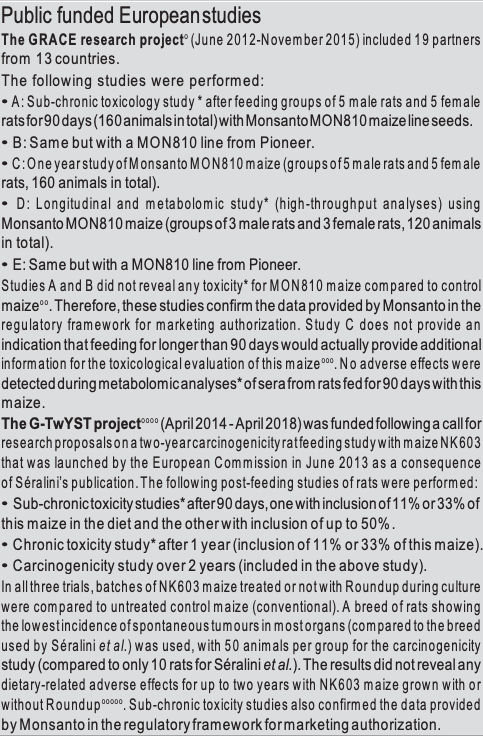
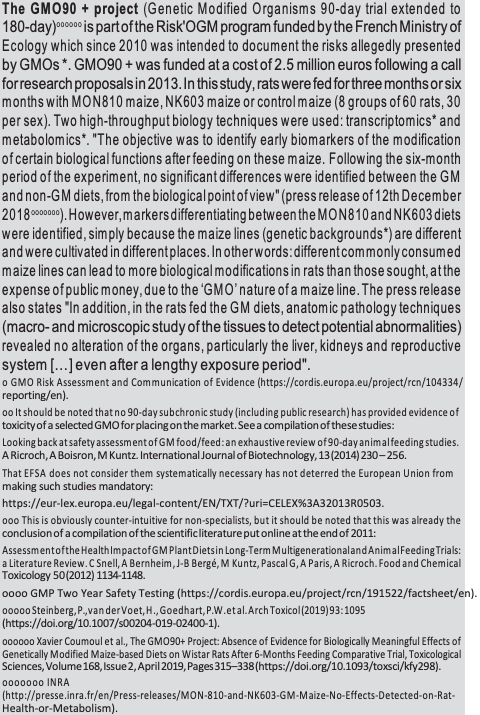
Sylvestre Huet, ‘OGM-poisons ? La vraie fin de l’affaire Séralini’, blog.lemonde.fr, 11 December, 2018.
Cécile Thibert, ‘Lien entre OGM et cancer : l’étude était fausse’, lefigaro.fr, 4 July, 2018.
Cyrille Vanlerberghe, ‘OGM : une manipulation scientifico-médiatique soigneusement préparée’, fr, 4 July, 2018.
Luc Ferry, ‘Non les OGM ne sont pas du poison !’, fr, 26 July, 2018.
Stéphane Foucart, ‘OGM : six ans après l’affaire Séralini, une étude conclut à l’absence de toxicité sur les rats’, fr, December 13, 2018.
‘OGM : l’expertise sanitaire en progrès’, fr, 13 December, 2018.
Rachel Mulot, ‘Une étude conclut à l’innocuité de maïs OGM’, Science et Avenir, 3 February, 2019.
Arnaud Gonzague, ‘L’Obs a-t-il vraiment écrit n’importe quoi sur le maïs OGM ?’, nouvelobs.com, 14 December, 2018.
Romain Loury, ‘Toxicité des OGM : la polémique Séralini est de retour’, journaldelenvironnement.net, 13 December, 2018.
‘À nouveau attaqué, le professeur Séralini répond à ses détracteurs’ (Again attacked, Professor Séralini responds to his critics), reporterre.net, 13 December, 2018.
The GMO90 + webpage117 explained that ‘the issue is to supply key data that can be used in different processes of risk assessment’, without mentioning the true origin of the project: Séralini et al.‘s claims.
However, for the journalist Sylvestre Huet, these results taken together with the European studies’ results signal ‘the real end of the Séralini affair’118. On 4 July 2018, ‘Le Figaro’ devoted a full page to this subject, including two articles, entitled ‘link between GMOs and cancer: the study was false’119 and ‘GMO: a carefully planned scientific-media manipulation’120. This was followed a few weeks later by an editorial by Luc Ferry (philosopher and former French Minister of Education) entitled ‘no, GMOs are not poison!’121.
But if, even according to a journalist in ‘Le Monde’,‘the matter is now settled’122, this did not prevent an editorial in the same newspaper denigrating the scientific risk assessment of GMOs in Europe (even though there was nothing in recent studies to conclude that anything was found wanting), advocating ‘a reform of health and environmental assessments’ and welcoming ‘the adoption by the European Parliament […] of a project to overhaul the Community assessment process towards greater transparency, independence and integrity [which] should, in the long term, restore confidence in the health authorities’123.
The ‘Science et Avenir’ magazine was less critical of Séralini than in its initial reaction in September 2012 and even in one figure treated Séralini’s study and the three recent European studies in the same manner124.
The ‘Obs’ magazine (formerly ‘Nouvel Observateur’) did not state its mea culpa and even gave voice to Séralini, contesting recent studies and trying to sow doubt by stating ‘things aren’t quite so simple’, with the theory, already mentioned above, of an all-powerful Monsanto125. A news website close to the ecological movement also gave voice to Séralini, but in a less burlesque manner126, whereas the ‘Reporterre’ website offered him a platform, without contradictor and without comments127.
See EFSA’s criticisms on two previous publications by Séralini et al., in 2007 and 2009 – see section 13, “any other business” .
They are in fact ‘links’ of interest, which are not reprehensible as such (but can become a convenient means of discrediting a person) and are sometimes unavoidable, and for which rules are necessary to prevent them from becoming real ‘conflicts of interests’.
Marcel The postmodern assault on science. If all truths are equal, who cares what science has to say? EMBO reports (2012)13:885-889.
Marcel Kuntz, “‘Parallel science’ of NGO advocacy groups: How post-modernism encourages pseudo- science”, 15 July, 2014.
See Marcel Kuntz, ‘How anti-GMO research is manufactured: Challenging two Séralini-lab studies that fueled renewed safety concerns over GMOs and glyphosate’, 12 December, 2009.
Originally, CRIIGEN’s communication operation was able to succeed thanks to the gullibility of the media to the ‘Unique research syndrome’128 and their appetite for the alarmism of political ecology. For most of the media, refutations of earlier articles published by the same team (by all the official agencies referred to review them129) did not serve as a warning. Monsanto’s poor image – and consequently GMOs’ – played a crucial role in the initial credibility of the allegations, as well as the status of anti-GMO activists as a countervailing power. The latter’s success is due, among other things, to the fact that they knew how to impose the terms of the debate (the risks, which obscure the benefits) by revisiting the myth of David against Goliath.
This affair, however, illustrates the ability of these activists to misuse their countervailing force, as well as their propensity to seek to discredit the bearers of facts contrary to their opinion or to construct conspiracy theories, rather than to accept the facts and to change their opinion. This has been constant throughout this affair (and in others) and remains so today in many cases. The subject of conflict of interest130 was omnipresent and concerned various protagonists, with no evidence whatsoever that they played a determining role in any decision.
This affair also highlights the unfortunate stance taken by a number of politicians, which has been the case for a long time in relation to GMOs.
Science has had a rough ride in this affair (media conditions, lack of transparency, ethical disrespect, inappropriate interpretation of results, refusal of legitimate criticism …). Science has certainly restored the facts, but its victory remains vulnerable. The anti-GMOs’ communication strategy has proven more effective than the seriousness of scientific studies: doubt persists in many minds and public research has still not resumed programs involving plant transgenesis in many countries. Other difficulties exist. First, due to the ideological divisions between scientists themselves. The rise in opinion, including within scientific circles, of postmodern*131, ideology (constructivist* and relativist) favours a parallel ‘science’132 (if science is considered a social construct* and everything is worthwhile then such activist ‘science’ becomes legitimate and confusion sets in). On the other hand, it should be pointed out that the publication’s flawed peer review discussed earlier did not serve as a lesson: two subsequent publications co-authored by Séralini also gave rise to refutation133.
The problem posed by scientific publications could be more general: studies with a questionable experimental protocol and weak conclusions are more and more frequently published, for example by claiming to have observed a negative impact of modern agriculture or of a chemical product. This type of publication is often publicised by the communication services of scientific institutions, maybe in order to promote their research institute by communicating in ideological conformity with the current alarmist doxa. In fact, the ‘precautionary’ ideology has led to a real scientific business assessing the risks of all kinds of human activities, a business where all players (researchers, journals, scientific institutions, not to mention the media) have an interest in identifying a detrimental effect…
ANSES (French Agency for Food, Environmental and Occupational Health & Safety), a public administrative establishment reporting to the French Ministries of Health, of Agriculture, of the Environment, and of Labour and Consumer Affairs. Website.
Constructivism / social construct. The term constructivism can be used in different senses. It is used here to illustrate the meaning given to it by the sociology of ‘science studies’: science would be merely a discourse constructed by an interpretive community that shares the same presuppositions, and created by the mixture of social circumstances, opinions, financial incentives and will power. Scientific facts would therefore have no reason to be considered as objective, or as corresponding to reality. This constructivism leads to relativism*.
EFSA (European Food Safety Authority). Website.
Genetic. A science studying the hereditary characteristics of individuals, their transmission to subsequent generations and their variations (mutations). DNA is the chemical carrier of genetic information, whose basic unit of inheritance is the gene. Alleles are the different versions of the same gene. The genetic background of a lineage represents all of its characters, therefore the alleles it contains. Website.
GMO. (Genetically Modified Organism). The definition of a GMO varies depending on country as well as the respective regulations. In 1990, the European Union legally defined a ‘genetic modification’. This regulatory concept is often criticized for not being scientifically relevant because it is based on the process used to obtain a product (such as transgenesis) and not to the properties of the final product. Legally, it applies to microorganisms, animals or plants. Here, the term refers to plants. Website.
HCB. Haut Conseil des Biotechnologies). The High Council for Biotechnology gives independent advice to the French government on all issues related to GMOs and other types of biotechnology. It is composed of a Scientific Committee that provides opinions on environmental and public health risks, and an Economic, Ethical and Social Committee that makes‘recommendations’ on the ‘societal aspects’ of biotechnology. Website.
Metabolomics. A recent science that studies all (or more accurately: families) of primary metabolites (sugars, amino acids, fatty acids, etc.) and secondary metabolites (including potentially toxic products, such as alkaloids, etc.) present in an organism, an organ, even a cell. Website.
Peer reviewing. A fundamental principle of scientific research: the activity of researchers who critically judge the work of other researchers, e.g. a scientific study submitted for publication (the proposed manuscript is received by the editor of the journal who sends it for evaluation to researchers deemed competent in the field). Wesbite.
Postmodernism. An ideology whose influence has gradually increased since the late 1960s to become media-dominant during the last twenty years. It is characterized by the denial of the ‘Enlightenment’ views, suspicion against reason and progress, and therefore against science and technology. The sociology of ‘science studies’ has helped to install this ideology at the heart of certain scientific institutions: science as a social construct* and a network of controversies and power. More widely at work in society, postmodernism values relativism* and political correctness, and promotes communitarianism. Postmodernism derives from ‘Western Guilt’ and encourages communities to exist through faults committed against them (slavery, colonialism, racism, sexism, etc.). Science, too, is considered having a negative record since its ‘faults’ would be many: the Manhattan project and other weapons of massive destruction, chemical pollution, etc. Website.
Relativism. The French sociologist Raymond Boudon distinguished “‘good’ relativism that promotes respect for others from ‘bad’, which leads to loss of intellectual references, feeds nihilism and damages democracy”. Cognitive relativism asserts the equal (absence) of objectivity between scientific knowledge and other explanations. The postmodern views * also have a tendency towards the refutation of the axiological neutrality of science: scientists wanting to stick to facts (to possibly derive values from them) are delegitimized in relation to those who put forward, as a value, to be aware of the responsibility incumbent on scientists (facts becoming secondary). That postmodernist relativism is actually an ‘assault on science has been difficult to grasp for many scientists, because it comes disguised in the clothes of democracy, freedom of speech and toleration of opinion’. Website.
Toxicity (Chronic / Sub-chronic). An adverse effect resulting from exposure to repeated doses of a substance over a relatively long (chronic) or shorter (sub-chronic) period. The term is also used to describe the effects observed in laboratory animals. Website.
Transcriptomics. A recent science that studies the transcriptome (a set of messenger RNAs resulting from the expression of a genome) with the aim of measuring the expression of all the genes of an organism, an organ, or even a cell. Website.
Transgenic/transgenesis. Transgenesis refers to the set of techniques for introducing and expressing in a living organism one or more genes from another organism. The organism thus produced is termed transgenic. Website.

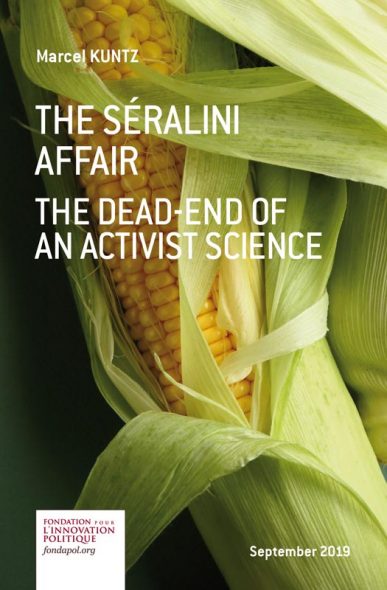
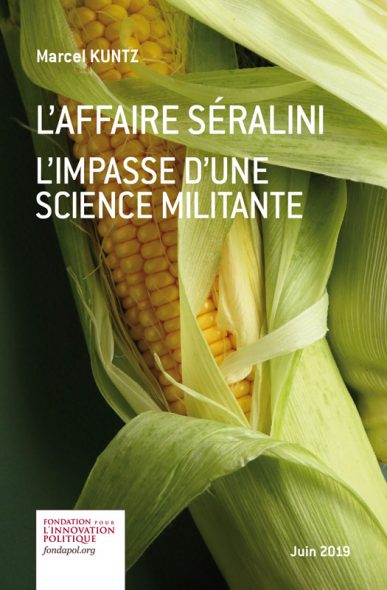
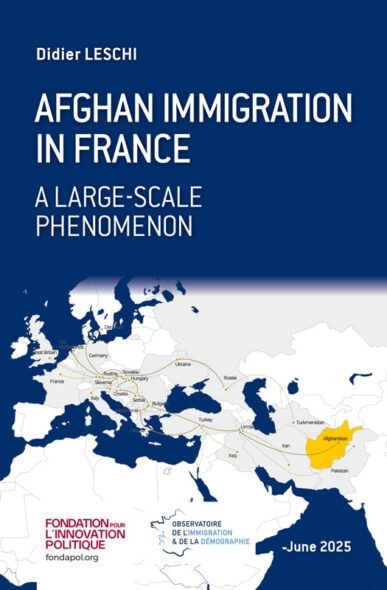
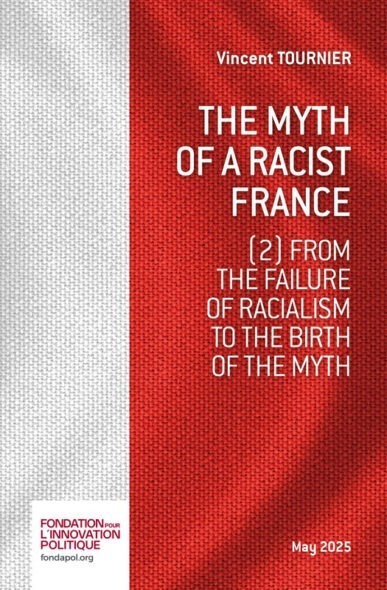
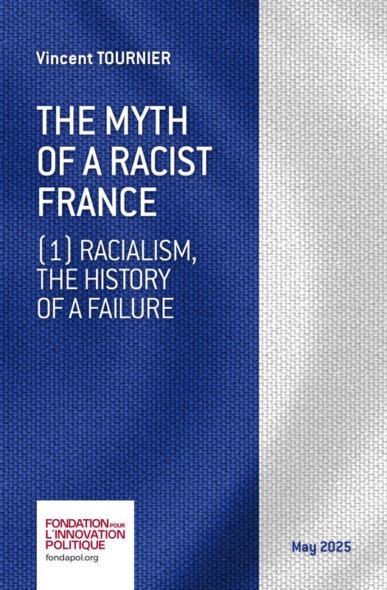
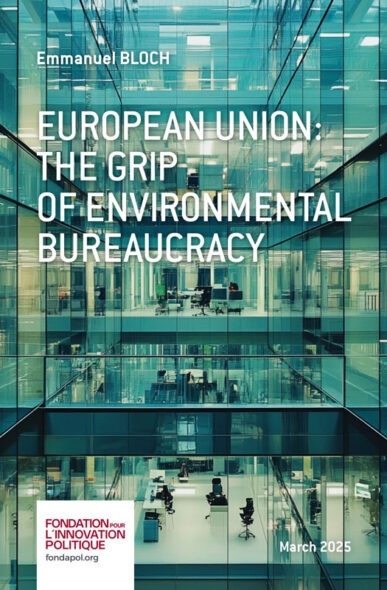
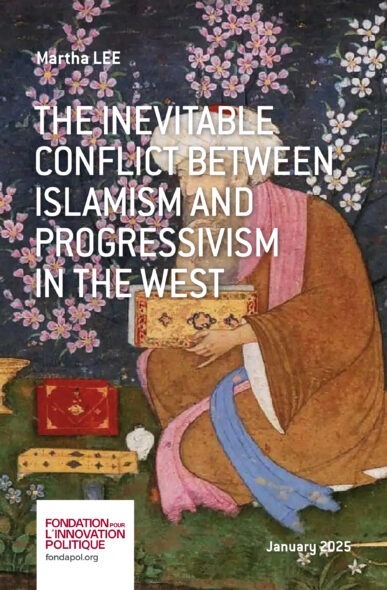
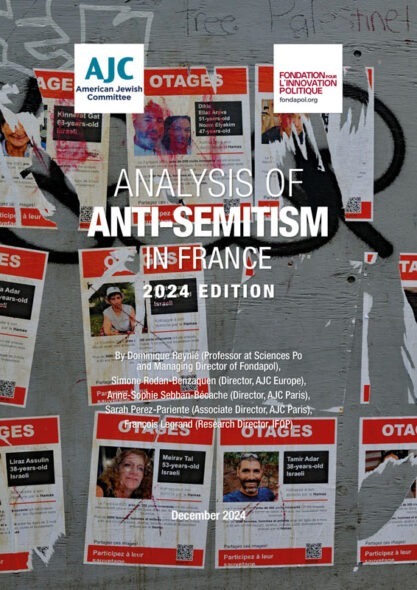
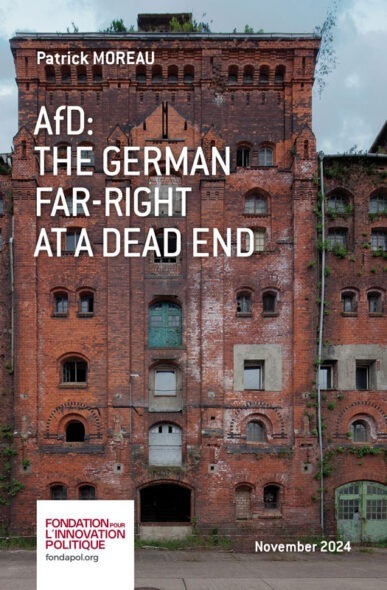
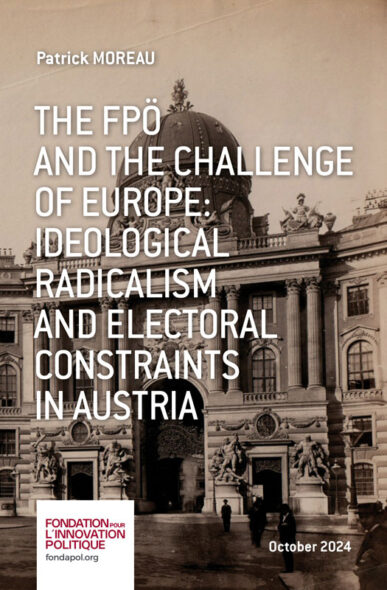

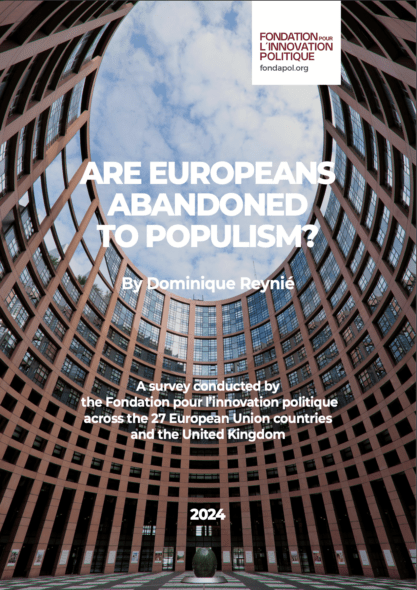
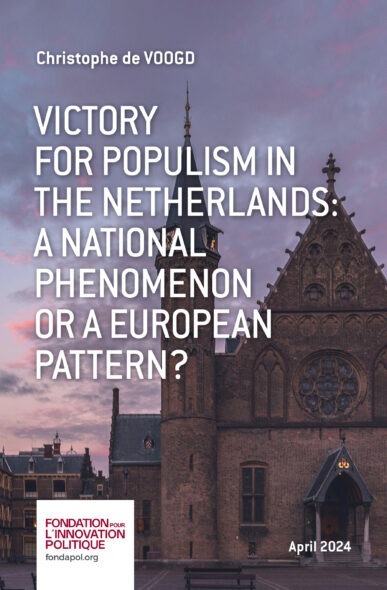
No comments.